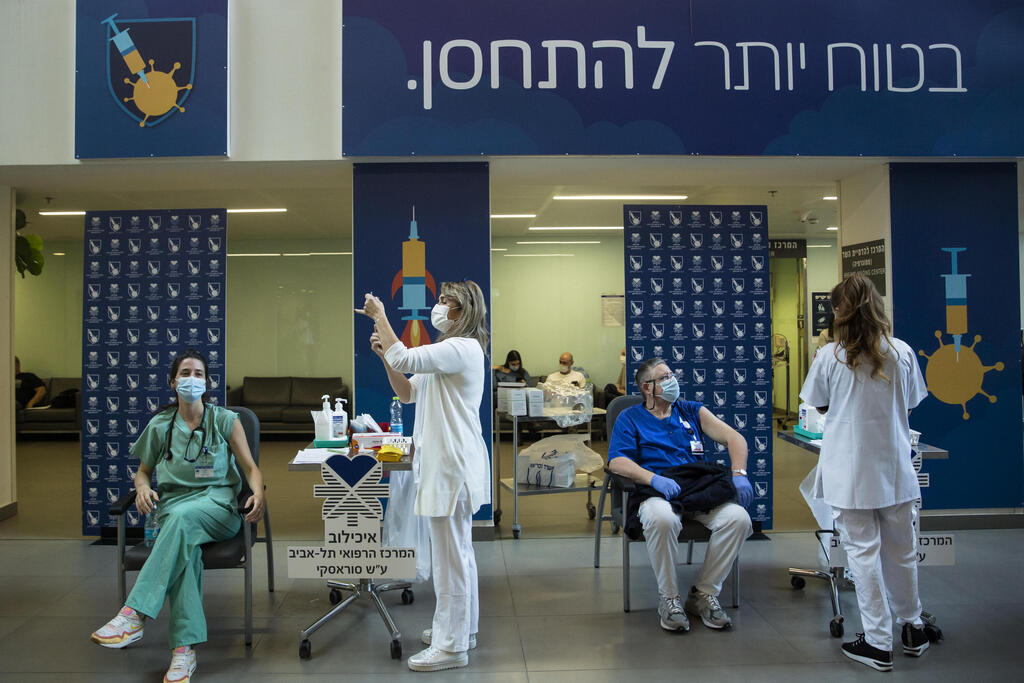Researchers at Ben-Gurion University have discovered patterns of significantly decreased joy, increased sadness, fear, and disgust among health care professionals in the largest social media study to track emotional changes and discourse during the coronavirus pandemic.
In the study, a multidisciplinary BGU team analyzed more than 53,000 health care professionals' tweets and discerned common points of interest.
2 View gallery


Healthcare professionals on the coronavirus ward at Sheba Medical Center in Tel Hashomer
(Photo: Tal Shahar)
The most significant topics discussed during the pandemic were COVID-19 information, public health and social values, medical studies as well as daily life and food. Approximately 44% of their discourse was about professional topics during the entire 2020 year.
The groundbreaking research implemented data-driven approaches for analyzing social media networks and showed they are helpful as a method for exploring professional health insights during both routine clinical situations and emergencies.
2 View gallery


Medical staff receiving the coronavirus vaccine at Ichilov hospital in Tel Aviv
(Photo: Getty Images)
“Our findings, which track increasing sadness and decreasing joy, should be a warning to health organizations of the importance of better mental health support to help HCPs cope with the emotional consequences of the pandemic,” say Dr. Rami Puzis of BGU Software and Information System Engineering Department (SISE), and Dr. Odeya Cohen of the Department of Nursing.
“Most interestingly, health care professionals' tweets expressed greater levels of fear just prior to pandemic waves in 2020. This indicates that many health care professionals, beyond those working in epidemiology, observed, and were adequately qualified to anticipate pandemic development,” they say.
Puzis notes: “This suggests that decision-makers could benefit from investing additional resources into listening to the broader HCP community to track and anticipate bottom-up pathways for developing health crises.”

